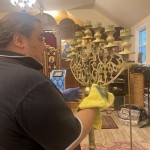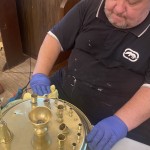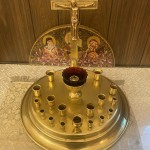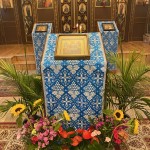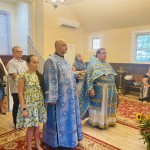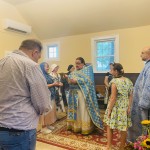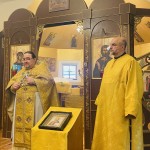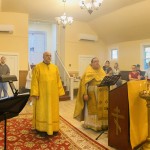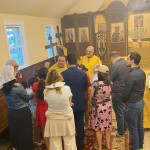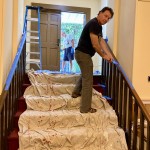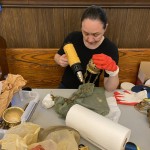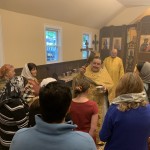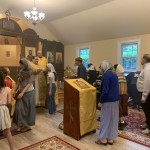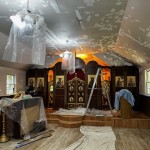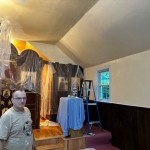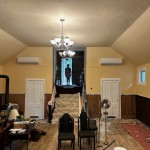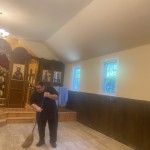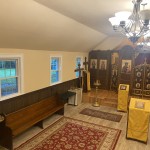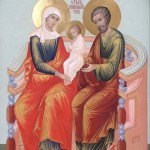Our parishioners have begun painting the inside of the church. Work continues to improve the surrounding area. We invite everyone to help us on the remaining Saturdays.
We congratulate our young parishioner Elena, who celebrated her birthday on August 9, the day of the holy great martyr and healer Panteleimon.
Troparion, tone 3
Passion-bearing saint and healer Panteleimon, pray to the Merciful God to grant forgiveness of sins to our souls.
Kontakion, tone 5
Imitator of the Merciful One and the healing grace received from Him, passion-bearer and martyr of Christ God, with your prayers heal our spiritual ailments, driving away the ever-fighting temptations from those who cry out truly: save us, Lord.
Начата покраска внутренней части храма силами наших прихожан. Продолжаются работы по благоустройству прилегающей территории. Приглашаем всех помочь нам в в остальных субботах.
Мы поздравляем нашу юную прихожанку Елену, которая отпраздновала свое день рождение 9 августа, в день святого великомученика и целителя Пантелеимона.
Тропарь, глас 3
Страстотерпче святый и целебниче Пантелеимоне, моли Милостивого Бога, да прегрешений оставление подаст душам нашим.
Кондак, глас 5
Подражатель сый Милостивого и исцелений благодать от Него прием, страстотерпче и мучениче Христа Бога, молитвами твоими душевныя наша недуги исцели, отгоня присно борца соблазны от вопиющих верно: спаси ны, Господи.


